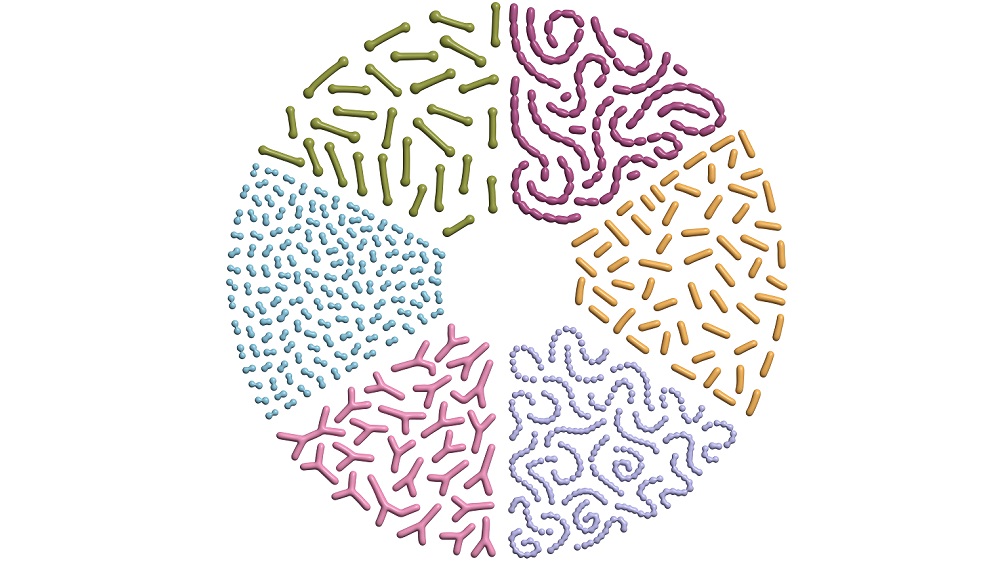Probiotics Have Positive Cognitive Effects in Trial
- The mechanism behind this connection needs further research.

A clinical trial has found that consuming a multi-species probiotic formulation positively impacts mental well-being and improves cognitive functions [1].
Gut-brain crosstalk
The gut microbiome is a gathering of microorganisms in the human gut that plays multiple essential functions, from nutrient absorption to immune system modulation [2, 3]. The gastrointestinal tract (with its microbes) also tremendously impacts the brain, and this gut-brain axis is currently intensely researched [4]. Alterations to the gut microbiome are emerging as a new strategy to treat cognitive and emotional decline, which develops with old age.
The well-established cross-talk between the gut and the brain prompted the researchers to hypothesize about a possible link between the gut and neurodegenerative diseases or mood disorders. Some hypotheses suggest that imbalances in specific gut bacteria might lead to a neuroinflammatory environment, mitochondrial dysfunction, or oxidative stress, processes that could contribute to neuronal impairment [5, 6].
Bringing back the balance
However, the gut-brain connection doesn’t have to be all bad. If the imbalance in microbes can negatively impact the brain, then bringing back the balance can possibly help treat some brain disorders. The researchers are already investigating such possibilities by investigating the consumption of probiotics and prebiotics and their impacts on dementia, cognitive impairment, anxiety, and depression.
Some previous studies have shown encouraging results. Consuming some specific bacteria species was associated with an improvement in cognitive functions [7-9] and a reduction in symptoms of anxiety and depression [10]. A few clinical studies have also observed improved cognitive function after consuming probiotics [11-13].
However, the authors point out that participants in the previous studies had multiple pathologies, and there is a lack of data on whether such an effect can be obtained in a healthy, elderly population.
Therefore, the authors of this study decided to test the efficacy of a multi-species probiotic formulation, specifically Lactobacillus rhamnosus and Bifidobacterium lactis, since previous studies using this formulation didn’t give conclusive results regarding emotional and cognitive states [14-17]. The authors tested this combination “as a therapeutic strategy to attenuate the emotional and cognitive decline associated with ageing in healthy adults.”
Better cognition and well-being
For this study, the researchers conducted a randomized, double-blind, placebo-controlled crossover trial. The trial was rather small, as it included only 33 participants who were 55 or older, with a mean age of 66 years. At the baseline, the majority of participants (85.2%) showed no cognitive impairment, with 14.8% showing mild cognitive impairment.
During the trial, for ten weeks, the participants consumed a capsule containing a multispecies probiotic (or were given a placebo). This was followed by a 4-week washout period when participants followed the same diet without interventions, followed by another 10 weeks of treatment. The group that previously received a placebo was now given probiotics and vice versa. The participants were assessed at baseline, post-10-week intervention (first condition), and at the end of the study.
At the end of the experiment, the researchers didn’t observe any side effects of the treatment, but they did observe the positive impact of the bacteria consumption.
The participants participated in multiple tests to assess their cognition and psychological well-being. As the authors summarize, the results of those tests showed “a positive impact on mental well-being, leading to improved cognitive function and enhanced emotional state, along with a notable decrease in depressive symptoms.”
Possible mechanisms and limitations
While the researchers didn’t investigate the mechanism behind the consumption of the probiotics and the cognitive and emotional changes they observed, based on previous research, they hypothesized in the paper’s discussion section about possible mechanisms and pathways involved.
They proposed that the beneficial role of the strains used in this research may result from their impact on multiple processes, such as neurotransmitter release, neurogenesis, neuropeptide expression, synaptic plasticity, and neuroinflammation. They believe that restoring gut microbiome balance can also help in such processes as strengthening the intestinal barrier, modulating the stress hormone cortisol’s synthesis, and improving sleep quality.
This study had some limitations. To get better support for the hypothesis of the gut-brain-axis impact on cognition, future research should measure neurological, endocrine, or immunological parameters, such as by including stool samples or markers of inflammation or oxidative stress.
Furthermore, researchers admit they didn’t properly control for different probiotic strains that could be ingested with the food eaten by the participants, which could potentially interfere with the results. Additionally, further research would benefit from a larger sample size and a longer study duration.
Literature
[1] Ruiz-Gonzalez, C., Cardona, D., Rueda-Ruzafa, L., Rodriguez-Arrastia, M., Ropero-Padilla, C., & Roman, P. (2024). Cognitive and Emotional Effect of a Multi-species Probiotic Containing Lactobacillus rhamnosus and Bifidobacterium lactis in Healthy Older Adults: A Double-Blind Randomized Placebo-Controlled Crossover Trial. Probiotics and antimicrobial proteins, 10.1007/s12602-024-10315-2. Advance online publication.
[2] Adak, A., & Khan, M. R. (2019). An insight into gut microbiota and its functionalities. Cellular and molecular life sciences : CMLS, 76(3), 473–493.
[3] Gomaa E. Z. (2020). Human gut microbiota/microbiome in health and diseases: a review. Antonie van Leeuwenhoek, 113(12), 2019–2040.
[4] Cryan, J. F., O’Riordan, K. J., Cowan, C. S. M., Sandhu, K. V., Bastiaanssen, T. F. S., Boehme, M., Codagnone, M. G., Cussotto, S., Fulling, C., Golubeva, A. V., Guzzetta, K. E., Jaggar, M., Long-Smith, C. M., Lyte, J. M., Martin, J. A., Molinero-Perez, A., Moloney, G., Morelli, E., Morillas, E., O’Connor, R., … Dinan, T. G. (2019). The Microbiota-Gut-Brain Axis. Physiological reviews, 99(4), 1877–2013.
[5] Harach, T., Marungruang, N., Duthilleul, N., Cheatham, V., Mc Coy, K. D., Frisoni, G., Neher, J. J., Fåk, F., Jucker, M., Lasser, T., & Bolmont, T. (2017). Reduction of Abeta amyloid pathology in APPPS1 transgenic mice in the absence of gut microbiota. Scientific reports, 7, 41802.
[6] Huang, Y., Shi, X., Li, Z., Shen, Y., Shi, X., Wang, L., Li, G., Yuan, Y., Wang, J., Zhang, Y., Zhao, L., Zhang, M., Kang, Y., & Liang, Y. (2018). Possible association of Firmicutes in the gut microbiota of patients with major depressive disorder. Neuropsychiatric disease and treatment, 14, 3329–3337.
[7] Tamtaji, O. R., Heidari-Soureshjani, R., Mirhosseini, N., Kouchaki, E., Bahmani, F., Aghadavod, E., Tajabadi-Ebrahimi, M., & Asemi, Z. (2019). Probiotic and selenium co-supplementation, and the effects on clinical, metabolic and genetic status in Alzheimer’s disease: A randomized, double-blind, controlled trial. Clinical nutrition (Edinburgh, Scotland), 38(6), 2569–2575.
[8] Hsu, Y. C., Huang, Y. Y., Tsai, S. Y., Kuo, Y. W., Lin, J. H., Ho, H. H., Chen, J. F., Hsia, K. C., & Sun, Y. (2023). Efficacy of Probiotic Supplements on Brain-Derived Neurotrophic Factor, Inflammatory Biomarkers, Oxidative Stress and Cognitive Function in Patients with Alzheimer’s Dementia: A 12-Week Randomized, Double-Blind Active-Controlled Study. Nutrients, 16(1), 16.
[9] Xiao, J., Katsumata, N., Bernier, F., Ohno, K., Yamauchi, Y., Odamaki, T., Yoshikawa, K., Ito, K., & Kaneko, T. (2020). Probiotic Bifidobacterium breve in Improving Cognitive Functions of Older Adults with Suspected Mild Cognitive Impairment: A Randomized, Double-Blind, Placebo-Controlled Trial. Journal of Alzheimer’s disease : JAD, 77(1), 139–147.
[10] Messaoudi, M., Lalonde, R., Violle, N., Javelot, H., Desor, D., Nejdi, A., Bisson, J. F., Rougeot, C., Pichelin, M., Cazaubiel, M., & Cazaubiel, J. M. (2011). Assessment of psychotropic-like properties of a probiotic formulation (Lactobacillus helveticus R0052 and Bifidobacterium longum R0175) in rats and human subjects. The British journal of nutrition, 105(5), 755–764.
[11] Kim, C. S., Cha, L., Sim, M., Jung, S., Chun, W. Y., Baik, H. W., & Shin, D. M. (2021). Probiotic Supplementation Improves Cognitive Function and Mood with Changes in Gut Microbiota in Community-Dwelling Older Adults: A Randomized, Double-Blind, Placebo-Controlled, Multicenter Trial. The journals of gerontology. Series A, Biological sciences and medical sciences, 76(1), 32–40.
[12] Ohsawa, K., Nakamura, F., Uchida, N., Mizuno, S., & Yokogoshi, H. (2018). Lactobacillus helveticus-fermented milk containing lactononadecapeptide (NIPPLTQTPVVVPPFLQPE) improves cognitive function in healthy middle-aged adults: a randomised, double-blind, placebo-controlled trial. International journal of food sciences and nutrition, 69(3), 369–376.
[13] Chung, Y., Jin, H., Cui, Y., Kim, D. S., Jung, J. M., Park, J., Jung, E., Choi, E., & Chae, S. (2014). Fermented milk of Lactobacillus helveticus IDCC3801 improves cognitive functioning during cognitive fatigue tests in healthy older adults. Journal of Functional Foods, 10, 465–474.
[14] Haghighat, N., Mohammadshahi, M., Shayanpour, S., Haghighizadeh, M. H., Rahmdel, S., & Rajaei, M. (2021). The Effect of Synbiotic and Probiotic Supplementation on Mental Health Parameters in Patients Undergoing Hemodialysis: A Double-blind, Randomized, Placebo-controlled Trial. Indian journal of nephrology, 31(2), 149–156.
[15] Kelly, J. R., Allen, A. P., Temko, A., Hutch, W., Kennedy, P. J., Farid, N., Murphy, E., Boylan, G., Bienenstock, J., Cryan, J. F., Clarke, G., & Dinan, T. G. (2017). Lost in translation? The potential psychobiotic Lactobacillus rhamnosus (JB-1) fails to modulate stress or cognitive performance in healthy male subjects. Brain, behavior, and immunity, 61, 50–59.
[16] Czajeczny, D., Kabzińska, K., & Wójciak, R. W. (2023). Effects of Bifidobacterium Lactis BS01 and Lactobacillus Acidophilus LA02 on cognitive functioning in healthy women. Applied neuropsychology. Adult, 30(5), 552–560.
[17] Bharwani, A., Mian, M. F., Surette, M. G., Bienenstock, J., & Forsythe, P. (2017). Oral treatment with Lactobacillus rhamnosus attenuates behavioural deficits and immune changes in chronic social stress. BMC medicine, 15(1), 7.








